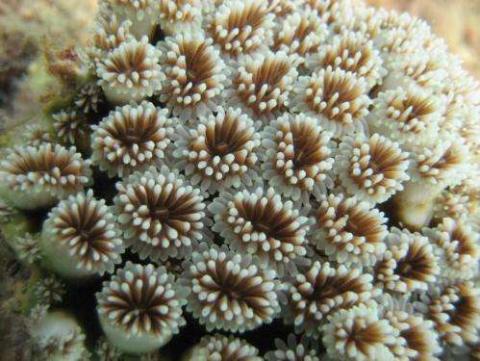
Impact of Acidity on Coral Health
A combined team of researchers affiliated with the Scripps Institution of Oceanography and the Bermuda Institute of Ocean Sciences has found, via a five year study, that increased ocean acidification may not pose the threat to coral reefs that scientists have thought.
In their paper published in Proceedings of the National Academy of Sciences, the team describes their study and why they now believe that an increase in green house gas emissions many not have the devastating impact on coral reefs that most in the field have assumed would occur. To better understand what might happen with coral reefs if more carbon dioxide makes its way into the oceans due to an increase of the gas in the atmosphere caused by human emissions, the researchers set up monitoring devices along a coral reef offshore from Bermuda—information from the sensors was monitored for five years (2007 to 2012). The team also had access to data from an ocean chemistry monitoring station approximately 80 kilometers from their study site. The combined data offered a unique perspective on coral activity.
In studying the data, the researchers noticed that spikes of phytoplankton blooms occurred during 2010 and again in 2011—those blooms made their way to the coral reef offering more food than normal for the coral. The coral responded by growing which caused them to pull more alkaline carbonate from the surrounding water, making it more acidic. Eating more also resulted in the corals emitting more carbon dioxide into the water. The result was a big increase in acidity—to levels higher than have been predicted for the future due to human emissions—yet, the coral continued to flourish.
